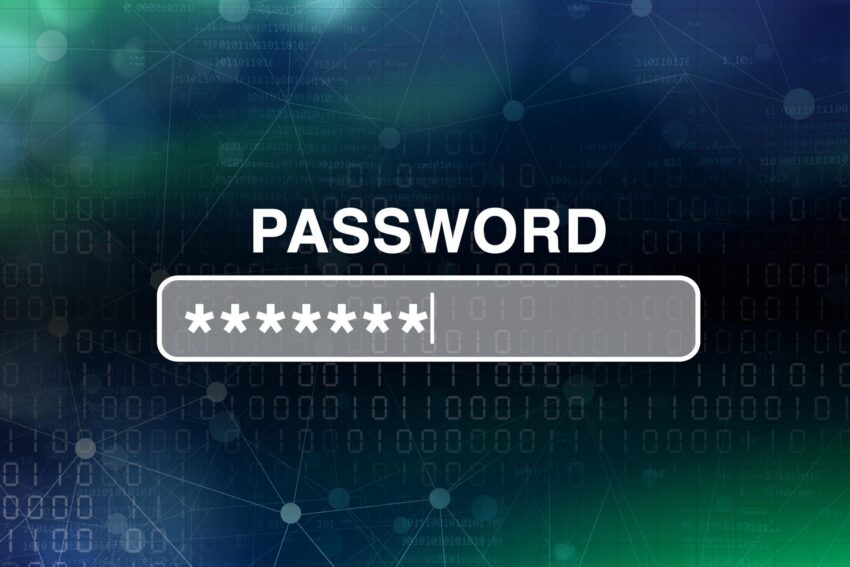Importance of Strong Passwords
In a cutting-edge interconnected world, where we rely on several online services and debts, the significance of sturdy passwords can not be emphasized sufficiently. A sturdy password serves as a vital protection mechanism against unauthorized access and protects our sensitive records from falling into the wrong palms.
- Safeguarding Personal Information: Strong passwords act as a barrier that forestalls hackers from gaining unauthorized get entry to our on line money owed. They assist shield our private statistics, economic records, and exclusive communications from being compromised.
- Preventing Identity Theft: Weak passwords make it simpler for cyber criminals to bet or crack them, permitting them to scouse borrow our identities and dedicate fraud. Strong passwords make it extensively more difficult for attackers to breach our bills and count on our virtual identities.
- Mitigating Data Breaches: Many high-profile statistics breaches arise due to susceptible passwords. By the use of sturdy passwords, we reduce the hazard of our money owed being compromised and limit the capacity effect of data breaches on our private and expert lives.
Risks of Weak Passwords
Using vulnerable passwords exposes us to diverse risks, making our on line presence susceptible to malicious actors. Here are some of the risks related to weak passwords:
- Brute-Force Attacks: Weak passwords, including not unusual dictionary words, sequential numbers, or effortlessly guessable styles, may be without difficulty cracked via brute-force attacks. Attackers use automatic gear to systematically bet combos until they locate the right password.
- Credential Stuffing: When we reuse weak passwords throughout a couple of accounts, cybercriminals can make the most this exercise through credential stuffing. They use stolen username and password combos from one breached account to benefit unauthorized access to different bills wherein the identical credentials are used.
- Phishing and Social Engineering: Weak passwords also can make us susceptible to phishing attacks and social engineering strategies. Attackers can trick us into revealing our passwords thru misleading emails, faux websites, or manipulative conversations, leading to unauthorized get entry to to our bills.
Purpose of the Blog
The reason of this weblog is to offer sensible pointers and steering on building robust passwords to ensure strong protection on your on-line bills. We will discover the characteristics of sturdy passwords, debunk not unusual misconceptions approximately password safety, and spotlight the factors that contribute to password vulnerability.
By following the pointers and satisfactory practices outlined in this blog, you will learn how to create sturdy, specific passwords and defend them efficiently. Strengthening your passwords will decorate your usual online protection, guard your private and monetary information, and help you live one step in advance of potential attackers.
Remember, a robust password isn’t just a random aggregate of characters but a important aspect of your digital defense strategy.
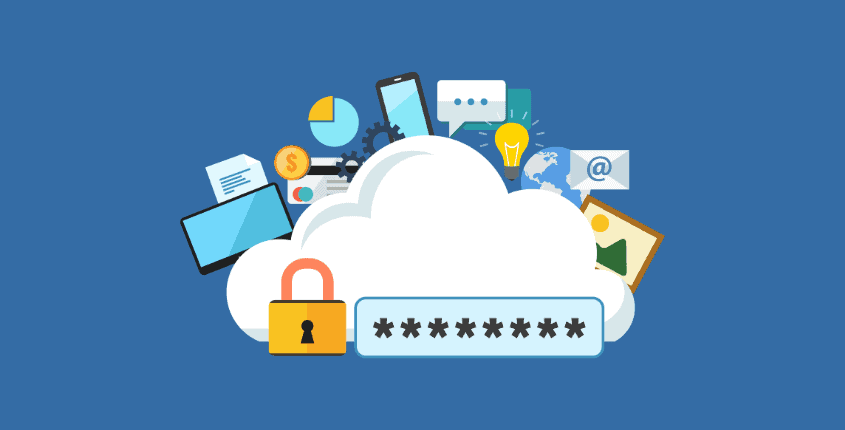
Understanding Password Security
A. Definition of a Strong Password
Before delving into the intricacies of password safety, it’s critical to understand what constitutes a strong password. A strong password is one this is designed to be resilient in opposition to hacking tries and difficult to wager or crack. It usually possesses the following characteristics:
- Length: A strong password is sufficiently long, generally as a minimum 12 characters or greater. The longer the password, the harder it’s miles for attackers to wager or brute-pressure it.
- Complexity: Strong passwords encompass a mixture of uppercase and lowercase letters, numbers, and special characters. The inclusion of these diverse character sorts increases the complexity of the password, making it more stable.
- Unpredictability: Strong passwords aren’t without difficulty guessable. They have to not encompass apparent information like names, birthdates, or commonly used phrases. Instead, they ought to be random and particular.
B. Common Misconceptions about Password Security
There are several misconceptions surrounding password protection that could lead to vulnerable passwords or ineffective safety practices. It’s important to debunk these misconceptions and apprehend the real nature of password security. Here are some not unusual misconceptions:
- Complex Passwords Are Hard to Remember: While sturdy passwords can also appear tough to consider to start with, there are techniques and strategies to create memorable but robust passwords. The focus have to be on the use of passphrases, mnemonics, or password managers to aid in password don’t forget.
- Changing Passwords Frequently Increases Security: The idea that changing passwords often improves protection isn’t entirely correct. Instead, it is extra powerful to create strong, specific passwords and change them only if there is a regarded compromise or suspicious interest.
- Password Length Is the Sole Determinant of Strength: While password length is crucial, strength isn’t always totally determined through duration by myself. The mixture of duration, complexity, and unpredictability is what makes a password without a doubt sturdy.
C. Factors that Contribute to Password Vulnerability
Understanding the elements that make a contribution to password vulnerability is essential in comprehending why sturdy passwords are essential. Several elements make passwords at risk of attacks:
- Dictionary Words and Common Phrases: Using dictionary phrases or usually used phrases as passwords increases the probability of them being easily guessed or cracked thru automatic tools.
- Personal Information: Incorporating private records such as names, birthdates, or addresses in passwords makes them at risk of focused assaults or social engineering strategies.
- Password Reuse: Reusing passwords across more than one accounts puts all the ones debts at threat. If one account is compromised, all different bills with the same password come to be prone.
- Lack of Two-Factor Authentication: Relying entirely on passwords with out utilising -component authentication (2FA) leaves money owed greater liable to unauthorized access. 2FA provides an additional layer of protection via requiring an additional verification step.
By knowledge those elements and the related dangers, we are able to take proactive measures to create strong passwords and adopt stable password practices that minimize the probabilities of unauthorized access to our accounts.
Choosing a Strong Password
A. Length and Complexity
When it comes to developing a strong password, length and complexity are essential elements to keep in mind. Here’s why:
- Length: Longer passwords are inherently greater secure as they increase the range of possible mixtures, making it harder for attackers to wager or crack them. Aim for at least 12 characters, however take into account going even longer for delivered security.
- Complexity: A robust password should consist of a combination of uppercase and lowercase letters, numbers, and unique characters. By incorporating numerous individual sorts, you considerably beautify the complexity of the password and make it greater resilient to brute-force attacks.
B. Avoiding Common Passwords and Dictionary Words
Using common passwords or dictionary phrases is a grave mistake that may compromise your protection. Here’s why you must avoid them:
- Guessability: Common passwords and dictionary phrases are without problems guessable via attackers. They regularly use automatic tools that strive recognized passwords and typically used phrases, increasing the probability of a hit breaches.
- Prevalence of Data Breaches: Data breaches regularly reveal good sized databases of passwords, which cybercriminals can then use for in addition attacks. By fending off not unusual passwords, you lower the probabilities of your password being compromised in such breaches.
C. Utilizing a Mix of Characters
To beautify the electricity of your password, ensure it consists of a combination of characters. Here’s how this could make a contribution to stronger passwords:
- Variability: Including a mixture of uppercase and lowercase letters, numbers, and unique characters presents more feasible mixtures, making your password greater proof against guessing and cracking strategies.
- Random Placement: Avoid predictable styles like putting numbers or symbols at the start or cease of the password. Distribute them randomly all through the password to add an additional layer of complexity.
D. Importance of Randomness
Randomness is a important element of sturdy passwords. Here’s why it matters:
- Unpredictability: Randomly generated passwords are hard to bet or crack because they lack any discernible styles or associations with personal information.
- Protection towards Brute-Force Attacks: Random passwords appreciably boom the time and computational sources required to perform brute-pressure attacks, making it less probably for attackers to be triumphant.
E. The Role of Password Managers
Password managers play a valuable position in retaining strong passwords and improving safety. Here’s why they may be worth thinking about:
- Secure Storage: Password managers securely keep and encrypt your passwords, protecting them from unauthorized get entry to.
- Convenience: Password managers simplify the system of dealing with multiple strong passwords by generating, storing, and autofilling them across different structures and gadgets.
- Unique Passwords: With a password manager, you could without problems create and preserve unique and sturdy passwords for every on-line account, decreasing the hazard of password reuse and capability breaches.
By incorporating these tips whilst choosing your passwords and considering the use of password managers, you could considerably beef up your online security and mitigate the hazard of unauthorized get entry to for your accounts. Remember, a sturdy password is your first line of defense in protective your valuable private information from cyber threats.
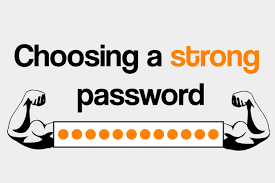
Best Practices for Password Creation
A. Unique Passwords for Each Account
Using the equal password for more than one bills poses a widespread security risk. Here’s why it is vital to create specific passwords for every account:
- Mitigating the Impact of Breaches: If one account with a shared password is compromised, all different bills using the same password end up vulnerable. Creating precise passwords ensures that a breach in a single account doesn’t have a domino effect in your different bills.
- Protection against Credential Stuffing Attacks: Cybercriminals often make the most reused passwords via credential stuffing assaults. By the use of precise passwords, you limit the risk of attackers gaining unauthorized get right of entry to to more than one bills.
B. Regularly Updating Passwords
Regularly updating your passwords is a essential exercise for keeping strong security. Here’s why it’s crucial:
- Preventing Unauthorized Access: Regularly converting passwords reduces the window of possibility for attackers who may have won get admission to for your account credentials.
- Mitigating the Impact of Data Breaches: If a carrier you operate reports a records breach, converting your password promptly ensures that the compromised password turns into previous, limiting the capability harm for your account.
C. Two-Factor Authentication
Enabling -aspect authentication (2FA) provides an additional layer of security in your money owed. Here’s why you should utilize 2FA:
- Enhanced Security: 2FA requires an extra verification step, generally thru a textual content message, app notification, or biometric records. This delivered layer of authentication makes it considerably harder for attackers to benefit unauthorized get entry to.
- Protection in opposition to Stolen Passwords: Even in case your password is compromised, 2FA acts as a secondary safeguard, stopping unauthorized get admission to for your account.
D. Be Cautious of Password Recovery Questions
Password healing questions may be a weak factor for your account safety. Here’s the way to be careful:
- Avoid Obvious Answers: Choose answers that are not without problems guessable or publicly available. Avoid the usage of records that can be observed on social media or through a brief on line seek.
- Use Misleading Answers: Instead of offering accurate responses, don’t forget the usage of nonsensical or deceptive answers which can be nevertheless memorable to you. This strategy adds a further layer of safety in opposition to social engineering assaults.
E. Avoiding Password Reuse
Reusing passwords throughout more than one money owed is a dangerous practice. Here’s why you have to avoid it:
- Amplified Impact of Breaches: If a password is compromised and reused throughout one of a kind accounts, all those accounts turn out to be prone. Attackers can gain unauthorized get entry to to a couple of debts the use of the equal password.
- Password Manager Benefits: Utilizing a password supervisor makes it simpler to generate and manipulate precise passwords for every account, reducing the temptation to reuse passwords.
By adhering to these fine practices, you could substantially fortify your password protection and limit the chance of unauthorized get entry to for your bills. Remember, sturdy and unique passwords, along side additional safety features like 2FA, provide an powerful protection against cyber threats.
Tips to Protect Your Passwords
A. Keeping Passwords Confidential
Maintaining the confidentiality of your passwords is crucial to protecting your accounts. Here are some tips to help you keep your passwords secure:
- Avoid Sharing Passwords: Never share your passwords with anyone, including friends, family, or colleagues. Keep them confidential and known only to you.
- Use Private Communication Channels: When communicating passwords, ensure you use secure and private channels, such as encrypted messaging apps or in-person communication.
- Beware of Shoulder Surfing: Be cautious of prying eyes when entering passwords in public places. Shield your screen and keypad to prevent others from seeing your passwords.
B. Be Wary of Phishing Attempts
Phishing is a common method used by cybercriminals to trick users into revealing their passwords. Stay vigilant and follow these tips to protect yourself:
- Verify the Source: Be cautious of emails, messages, or pop-ups asking for your password. Verify the legitimacy of the sender before providing any sensitive information.
- Check URLs: Before entering your password on a website, double-check the URL to ensure it matches the legitimate website address. Phishing attempts often use deceptive URLs that mimic legitimate sites.
- Avoid Clicking Suspicious Links: Refrain from clicking on links in unsolicited emails or messages, especially those requesting password changes or account verification. Instead, manually type the website address in your browser.
C. Using Secure Networks
The network you use to access the internet can impact the security of your passwords. Consider the following tips:
- Public Wi-Fi: Avoid entering passwords or accessing sensitive accounts when connected to public Wi-Fi networks. These networks are often insecure and prone to eavesdropping by attackers.
- Secure Connections: Whenever possible, use secure and encrypted connections, such as HTTPS, when transmitting passwords or accessing sensitive information online. Look for the padlock icon in your browser’s address bar to ensure a secure connection.
- Virtual Private Network (VPN): Consider using a VPN when accessing the internet, especially on public networks. A VPN encrypts your internet traffic, adding an extra layer of security and protecting your passwords from potential threats.
D. Protecting Your Devices
Securing your devices is essential to safeguarding your passwords. Implement these measures to protect your passwords and accounts:
- Strong Device Passwords: Set strong passcodes or passwords to lock your devices, including smartphones, tablets, and computers. Use a unique and complex combination of characters to enhance security.
- Keep Software Updated: Regularly update your device’s operating system, applications, and antivirus software. Software updates often include security patches that address vulnerabilities that could be exploited by attackers.
- Enable Biometric Authentication: Where available, utilize biometric authentication features such as fingerprint or facial recognition to protect your device and prevent unauthorized access.
By following these tips, you can significantly enhance the protection of your passwords and reduce the risk of unauthorized access to your accounts. Remember, maintaining password confidentiality, being vigilant against phishing attempts, using secure networks, and protecting your devices are essential components of a robust password security strategy.
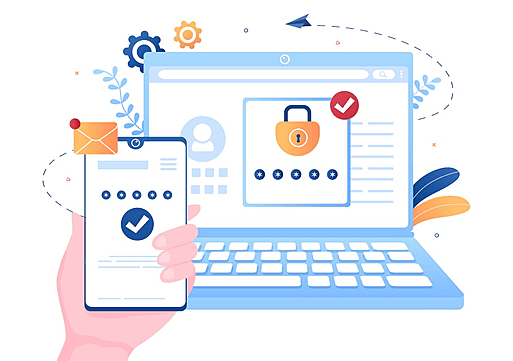
How to Remember Complex Passwords
A. Mnemonic Techniques
Remembering complex passwords may be difficult, but mnemonic strategies can help. Consider the following methods:
- Acronyms: Create a memorable word and use the primary letter of each word to form a password. For instance, “I love spending time with my own family” can emerge as “Ilstwmf!”.
- Song Lyrics or Quotes: Choose a fave tune lyric or quote and take the primary letter of each word to create a password. For example, “The street now not taken, roads diverged” turns into “Trnt2rd!”.
- Visual Associations: Create intellectual pictures that hyperlink on your password. For instance, in case your password is “Sunny123!”, consider a sunny day with the variety 123 written in the sky.
B. Password Hints Without Compromising Security
Password hints can help jog your memory with out revealing the password itself. Follow those guidelines to create powerful pointers:
- Personal Clues: Use guidelines that are meaningful to you however now not apparent to others. For example, if your password is associated with your preferred youth e-book, your hint can be “My secret adventure associate.”
- Word Associations: Provide guidelines that relate to the password’s theme or a memorable factor. For example, if your password is “Cascade21!”, the trace might be “A breathtaking waterfall and my lucky range.”
- Non-Direct Hints: Instead of giving explicit clues, offer guidelines that indirectly factor to the password. This approach provides an extra layer of complexity. For example, in case your password is “Blu3J@smine!”, the trace could be “My preferred shade combined with a lovely flower and a few special characters.”
C. Benefits of Passphrase-Based Passwords
Consider the usage of passphrases as opposed to traditional passwords. Passphrases are longer and less difficult to don’t forget at the same time as offering increased security. Here are some blessings:
- Length and Complexity: Passphrases are typically longer, making them tougher to crack. For instance, “CorrectHorseBatteryStaple” is greater stable than a shorter password.
- Easy to Remember: Passphrases are frequently less difficult to recall considering they can be based on acquainted terms or sentences.
- Increased Resistance to Brute-Force Attacks: Passphrases with sufficient length and complexity are more resistant to automated brute-pressure assaults.
Ensuring Password Security Across Devices
A. Importance of Secure Password Management Apps
Secure password management apps provide a handy and secure way to keep and manipulate your passwords. Consider the blessings:
- Encryption: Password managers use encryption algorithms to defend your passwords, ensuring that even if the statistics is compromised, it stays unreadable.
- Strong Password Generation: Password managers frequently include a password generator characteristic, allowing you to create particular and complicated passwords for each account.
- Single Master Password: With a password manager, you best need to consider one master password, which grants you get entry to to all your saved passwords.
B. Password Synchronization and Backup Options
Ensure that your passwords are synchronized throughout your gadgets and sponsored up securely. Here’s why it subjects:
- Accessibility: Synchronization guarantees that your passwords are to be had on all of your gadgets, permitting you to get admission to your debts seamlessly.
- Data Protection: Regularly backing up your password facts protects you from the lack of passwords because of device failure, accidental deletion, or different unexpected instances.
- Cloud Storage: Utilize password management apps with steady cloud garage alternatives to keep your password records adequately and encrypted.
The Future of Passwords
A. Emerging Technologies for Authentication
As technology continues to evolve, new methods of authentication are emerging, promising a future where passwords may become less prevalent. Here are some promising technologies:
- Behavioral Biometrics: Analyzing user behavior, such as typing patterns, mouse movements, or voice recognition, can provide unique identifiers for authentication, making it difficult for impostors to mimic.
- Two-Factor Authentication (2FA) Alternatives: While traditional 2FA involves a combination of passwords and codes, alternative methods like hardware tokens, smart cards, or push notifications to mobile devices are gaining popularity for enhanced security.
- Contextual Authentication: Using contextual information, such as the user’s location, device, or behavior, can provide additional layers of authentication and improve security.
B. Biometric Advancements
Biometric authentication has seen significant advancements in recent years, and these technologies are poised to play a larger role in password security. Here’s what the future holds:
- Multimodal Biometrics: Combining multiple biometric identifiers, such as fingerprints, facial recognition, or iris scans, can provide more robust authentication and reduce the risk of false positives or false negatives.
- Continuous Authentication: Rather than a one-time authentication event, continuous authentication analyzes biometric data throughout a user’s session to ensure ongoing security. This approach can detect anomalies and potential security threats in real-time.
- Improved Accuracy and Accessibility: Advancements in biometric sensors and algorithms are improving the accuracy and accessibility of biometric authentication, making it more reliable and user-friendly.
C. The Role of Passwordless Authentication
Passwordless authentication is an emerging concept that aims to eliminate passwords altogether. Here’s why it’s gaining traction:
- Enhanced Security: Passwordless authentication reduces the risk of password-related attacks, such as phishing, credential stuffing, or password cracking, by removing the reliance on passwords.
- User Convenience: Passwordless authentication simplifies the authentication process for users, eliminating the need to remember and manage passwords. This can lead to a smoother user experience and reduce the burden of password fatigue.
- Adoption of Standards: Industry standards like WebAuthn and FIDO2 are driving the adoption of passwordless authentication, providing a secure and interoperable framework for various platforms and devices.
While the future of passwords is evolving, it’s important to stay informed about emerging technologies and best practices for authentication. As we move towards a more secure and user-friendly authentication landscape, the reliance on traditional passwords may diminish, paving the way for innovative solutions that prioritize both security and convenience.
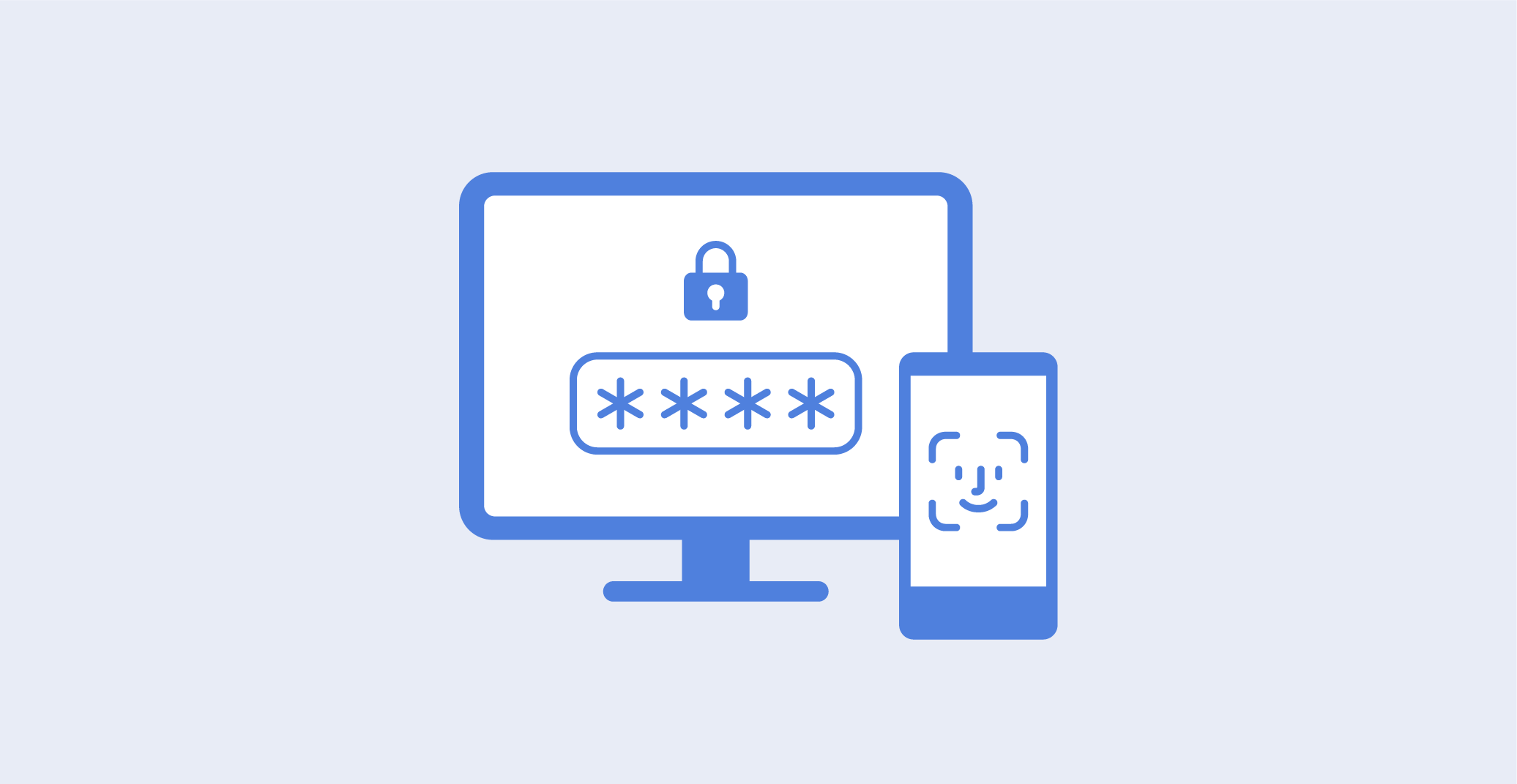
Conclusion
A. Recap of Key Points
In this blog, we explored diverse components of building strong passwords and making sure password safety. Let’s recap the key points we discussed:
- The Importance of Strong Passwords: Strong passwords are important for defensive our on-line accounts and touchy information from unauthorized get right of entry to.
- Risks of Weak Passwords: Weak passwords make it simpler for attackers to guess or crack them, compromising our debts and doubtlessly main to identity theft or economic loss.
- Understanding Password Security: We delved into the definition of a robust password, debunked common misconceptions, and examined factors that make a contribution to password vulnerability.
- Choosing a Strong Password: We furnished recommendations on password period and complexity, fending off not unusual passwords and dictionary words, making use of person diversity, emphasizing randomness, and utilizing password managers.
- Best Practices for Password Creation: We discussed the importance of the use of specific passwords for every account, frequently updating passwords, implementing -aspect authentication, being cautious with password restoration questions, and warding off password reuse.
- Tips to Protect Your Passwords: We explored the significance of preserving passwords personal, being wary of phishing attempts, using steady networks, and defensive our gadgets to safeguard our passwords.
- How to Remember Complex Passwords: We suggested mnemonic strategies, supplied hints for growing password pointers without compromising security, and highlighted the advantages of passphrase-based passwords.
- Ensuring Password Security Across Devices: We emphasised the importance of stable password control apps, password synchronization and backup options, and the convenience and security of biometric authentication.
- The Future of Passwords: We mentioned rising technologies for authentication, advancements in biometrics, and the position of passwordless authentication in shaping the future of password protection.
B. Encouragement to Take Password Security Seriously
Now more than ever, it’s miles important to take password protection significantly. The growing frequency and class of cyberattacks remind us of the importance of strong passwords and strong protection practices. By implementing the recommendations and nice practices shared on this blog, we can substantially enhance our password security and protect our on-line identities and private records.
C. Final Thoughts on the Importance of Strong Passwords
In an interconnected international where our personal and professional lives closely depend on online platforms, the importance of sturdy passwords cannot be overstated. They function the primary line of defense in opposition to cyber threats, safeguarding our digital presence and preserving our privacy. By understanding the dangers of weak passwords and implementing the strategies mentioned on this blog, we empower ourselves to live one step ahead of ability attackers and make certain the safety of our on line money owed.
Remember, constructing a strong password isn’t just a one-time mission; it requires ongoing vigilance and adherence to fine practices. Let’s prioritize password security, be proactive in safeguarding our bills, and take the essential steps to protect our digital lives. Together, we will create a more secure and greater stable on line surroundings for all and sundry.
